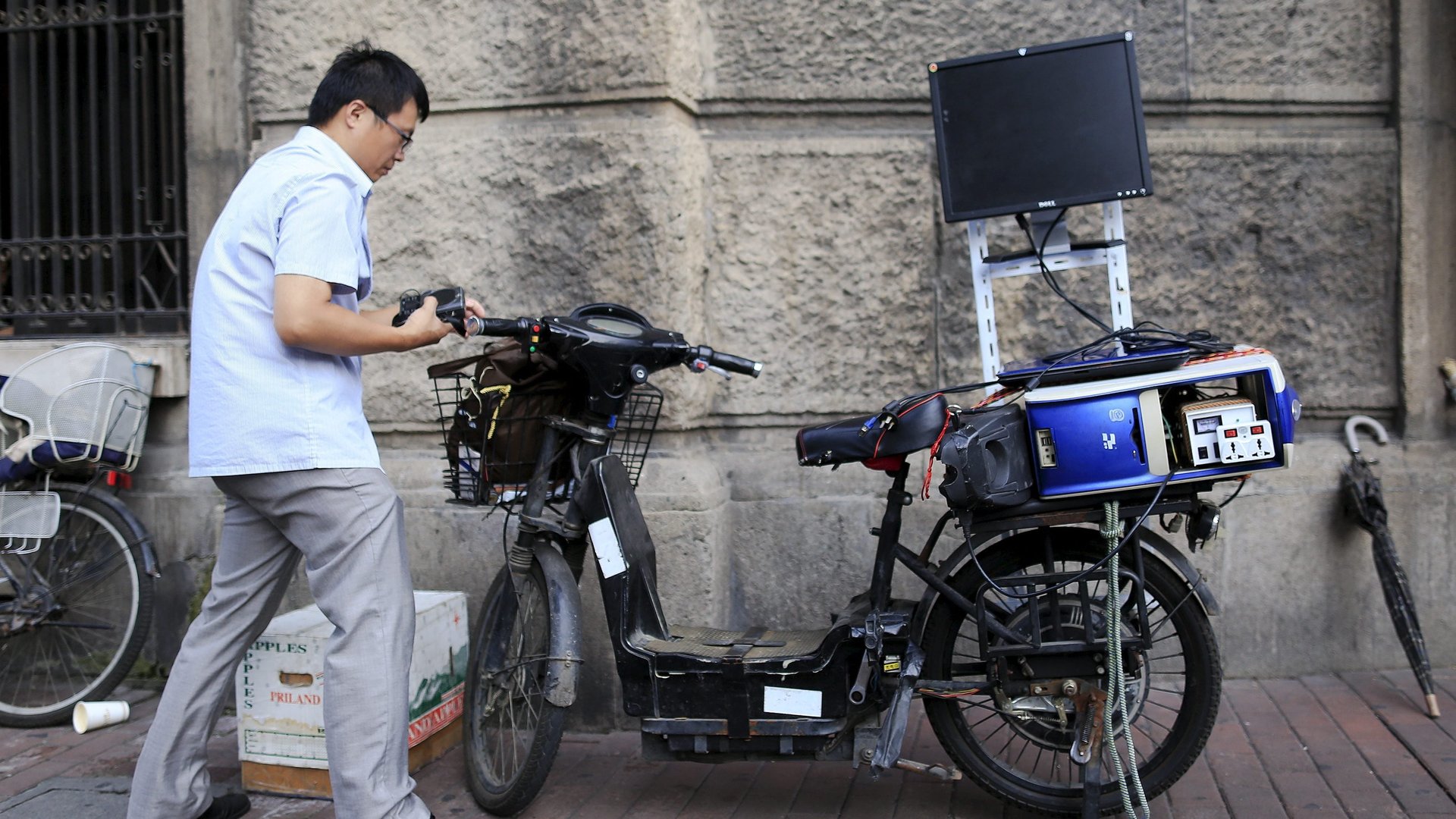The world’s biggest fintech wants to dominate China’s true electric transport opportunity
Walk for a short while on the streets of any of China’s big cities and there’s zero chance you won’t run into electric two-wheelers whose riders, in their yellow or blue helmets, usually work for China’s largest delivery services Ele.me and Meituan Dianping, or deliver online shopping packages.


Walk for a short while on the streets of any of China’s big cities and there’s zero chance you won’t run into electric two-wheelers whose riders, in their yellow or blue helmets, usually work for China’s largest delivery services Ele.me and Meituan Dianping, or deliver online shopping packages.
Chinese fintech behemoth Ant Financial, and battery giant CATL, are betting on those riders. The two companies, along with Shanghai-based bike-sharing company Hellobike, are investing a billion yuan ($140 million) into a joint venture to set up a battery-swapping network for electric bikes, CATL said (link in Chinese) yesterday (June 12).
They didn’t disclose their shares in the joint venture, which will be helmed by Hellobike’s CEO, Yang Lei, Chinese tech media 36kr reported (link in Chinese). Ant Financial, a $150 billion company (paywall) that runs the world’s biggest digital wallet (paywall), is an investor in the three-year-old bike-share firm.
It’s an interesting time to invest in electric two-wheelers. China’s electric car market, for months the only bright spot in the slowing auto market, seems to be hitting the brakes amid an economic slowdown. But the market for electric two-wheelers— China accounts for nearly all of the world’s 250 million of them—is still growing. In contrast, China bought about a million electric passenger cars last year.
Electric two-wheelers are affordable compared to their gasoline-powered cousins, making them ideal for China’s insatiable appetite for delivery services.
Hellobike’s Yang said (link in Chinese) the joint-venture is looking at setting up battery-swapping stations every 500 meters to one kilometer (0.3 to 0.6 miles) in major cities. Users, both those riding electric Hellobikes and other couriers, can pick up fully-charged batteries from lockers, avoiding wasting time charging batteries. Yang didn’t say how much the service will cost.
Yang estimated the number of rides taken on electric two-wheelers each day could reach 700 million, almost three times those on regular two-wheelers. Some Chinese cities, however, are starting to limit the number of bikes companies can put on the streets to prevent chaotic parking.
Battery-swapping is an idea that has been tried before—unsuccessfully. It requires high upfront investment, and a high enough volume of use to cover the costs of each station.
Better Place, an Israeli startup, spent $1 billion to build battery-swapping stations, yet there weren’t enough electric vehicles in circulation and the idea eventually led it to bankruptcy in 2013. In 2016, Tesla abandoned a California battery-swapping pilot program, likely for similar reasons.
But perhaps it’s an idea whose time has come. Two other Chinese electric car makers are also giving it a try—Shanghai-based startup NIO and state-owned electric giant BJEV.
Looking for more in-depth coverage? Sign up to become a member and read more in-depth coverage of China’s electric-car boom in our field guide.